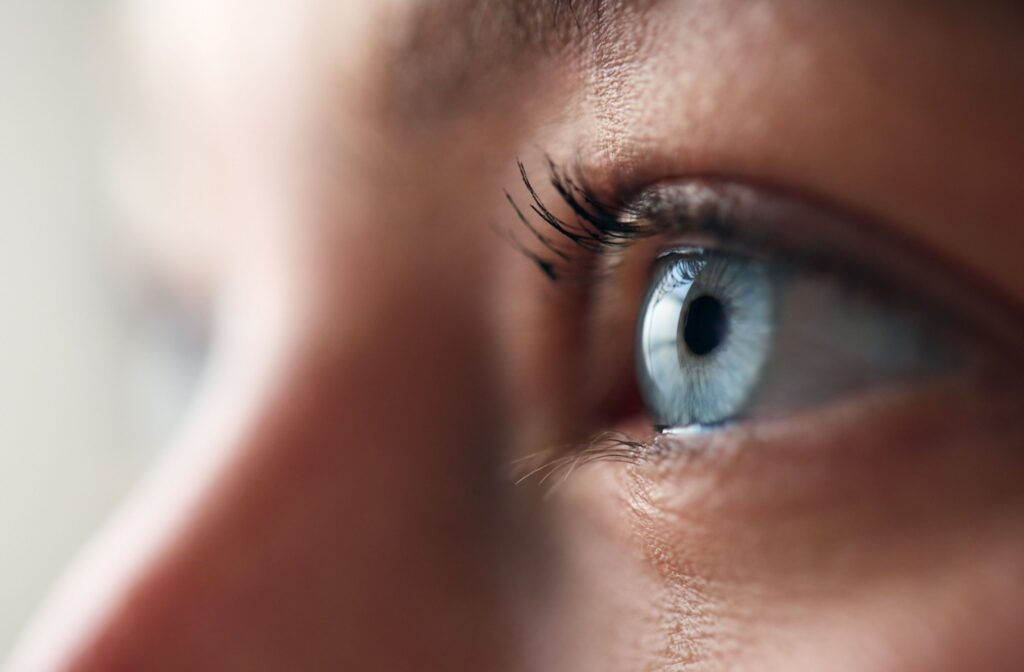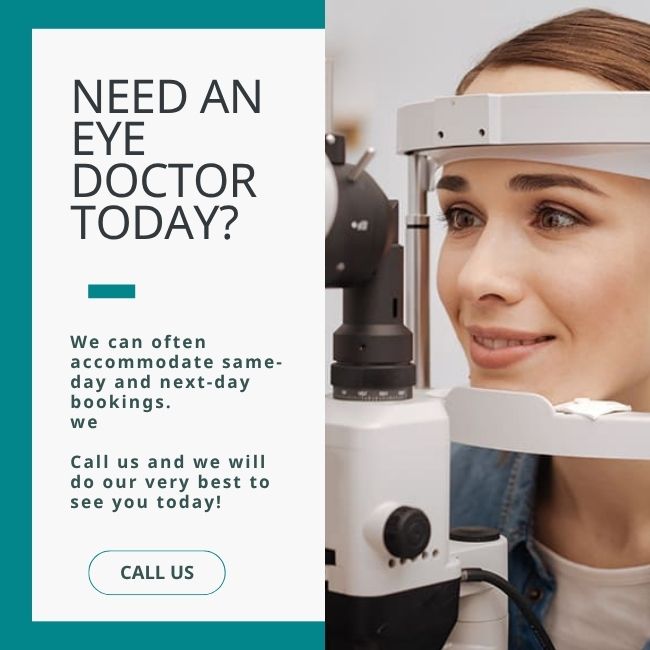Eyesight is something many people take for granted—until it starts to change. Whether you’ve worn glasses since childhood or have recently begun to notice some blurriness, it’s natural to wonder: Can your eyesight get better? While most vision changes are gradual and age-related, it is possible for your eyesight to improve under certain conditions.
However, it’s more common for vision to change or worsen over time than to improve on its own. Understanding what affects your vision and how to protect it can help you make the most of your eye health.
What Typically Happens to Your Eyes as You Age?
Your eyes are dynamic, ever-evolving organs that undergo significant changes throughout your life. For most people, vision stabilizes during adolescence, but it often begins to decline again in adulthood.
Around your 40s or 50s, you may notice that it becomes harder to read small text or see clearly up close. This is a common condition known as presbyopia. It occurs when the lenses of your eye lose flexibility, making it harder to focus on nearby objects.
Other age-related eye conditions can also affect your eyesight, including:
- Cataracts: A clouding of the eye’s lens that causes blurry or dim vision.
- Glaucoma: Increased pressure in the eye that damages the optic nerve, potentially leading to vision loss.
- Macular degeneration: A condition affecting the central part of the retina, impairing your ability to see fine detail.
These conditions underscore why regular eye exams become more important as we age. The earlier we identify problems, the quicker we can start to manage them.
Can Eyesight Improve on Its Own?
In most cases, your vision won’t improve significantly on its own. Refractive errors like myopia (nearsightedness), hyperopia (farsightedness), and astigmatism usually require corrective lenses or surgical options to improve. That said, temporary changes in vision can occur due to factors like:
- Overall health improvements: Better blood sugar control, lower inflammation, or hormone balance may positively impact eyesight.
- Diet and hydration: Nutrients like vitamin A, C, E, and omega-3s, along with proper hydration, support long-term eye health.
- Reduced screen time: Less strain from digital devices may make your eyes feel more comfortable, though it doesn’t typically reverse a refractive error.
In short, while lifestyle changes can support and protect your eye health, they don’t usually restore clear vision without help from glasses, contacts, or surgery.

What If Your Eyesight Starts Getting Better?
An unexpected improvement in vision can be surprising—and sometimes concerning. In rare cases, improved near vision in adults may actually signal the onset of cataracts. This is known as “second sight,” where the lens changes shape and improves your up-close vision, temporarily masking a deeper issue.
Other medical conditions, like diabetes or thyroid issues, can also cause fluctuations in vision. If your eyesight improves unexpectedly, speak with an optometrist. Rather than being a lucky break, this could be your body’s way of flagging a more serious problem.
How to Preserve & Protect Your Vision
While most people won’t experience vision improvements without intervention, there’s still plenty you can do to keep your eyesight stable and slow future decline. Protecting your vision starts with everyday habits:
- Get regular eye exams: Even if your vision feels fine, routine exams help detect changes before symptoms appear.
- Eat for your eyes: Foods like salmon, leafy greens, citrus fruits, and carrots are rich in eye-friendly nutrients.
- Limit screen time and glare: Follow the 20-20-20 rule—every 20 minutes, look at something 20 feet away for 20 seconds—to reduce eye strain.
- Wear UV protection: Sunglasses that block 100% of UV rays can prevent damage from sunlight and reduce your risk of cataracts and macular degeneration.
- Try vision therapy: For some people, especially children with focusing or coordination issues, vision therapy may help improve how the eyes work together.
Taking these steps won’t “cure” vision issues like nearsightedness, but they can help maintain your visual health and slow the progression of some conditions.

When to See an Eye Doctor
If you’ve noticed recent changes in your vision, it’s worth checking in with an eye care professional. Vision can fluctuate for many reasons, and only a comprehensive eye exam can help determine whether what you’re experiencing is a natural variation, a correctable error, or a sign of something more serious.
Look out for symptoms like:
- Sudden blurriness or sharpness
- Frequent headaches
- Trouble focusing at near or far distances
- Flashes of light or new floaters
- Sensitivity to light
These signs could mean it’s time for a prescription update—or a closer look at your overall eye health.
Keep an Eye on Your Vision with Professional Care
While your eyesight may not spontaneously improve on its own, taking charge of your eye health can make a meaningful difference in how well you see—and how comfortable your eyes feel. Regular exams, proper nutrition, screen breaks, and UV protection are all part of a proactive plan to preserve your vision for the long haul.
If you’ve noticed changes in your eyesight or just want to better understand your vision health, Trinity Hills Eyecare in Calgary is here to help. Our team provides thorough, friendly, and personalized eye care to help you stay ahead of potential issues and see your best every day. Schedule your eye exam today and let’s take the next step in protecting your vision.




